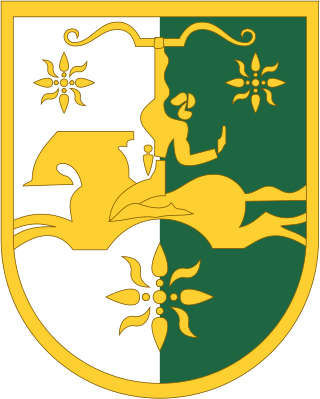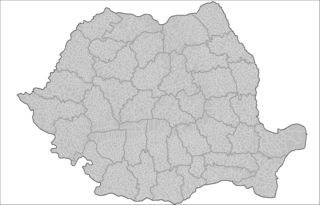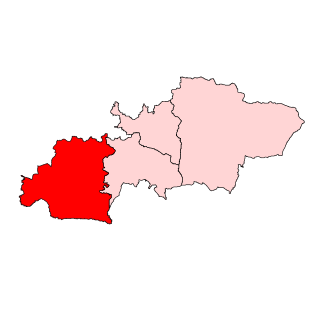| |||||||||||||||||
| Registered | 456,981 | ||||||||||||||||
|---|---|---|---|---|---|---|---|---|---|---|---|---|---|---|---|---|---|
| Turnout | 46.73% (election invalid) | ||||||||||||||||
| |||||||||||||||||
| |||||||||||||||||
Early presidential elections were held in the Republic of Montenegro on 9 February 2003, after the December 2002 elections had been declared invalid due to insufficient voter turnout. [1]
| |||||||||||||||||
| Registered | 456,981 | ||||||||||||||||
|---|---|---|---|---|---|---|---|---|---|---|---|---|---|---|---|---|---|
| Turnout | 46.73% (election invalid) | ||||||||||||||||
| |||||||||||||||||
| |||||||||||||||||
Early presidential elections were held in the Republic of Montenegro on 9 February 2003, after the December 2002 elections had been declared invalid due to insufficient voter turnout. [1]
The low turnout was caused by a boycott by the major opposition parties, voters being disillusioned with politics, and poor weather conditions on polling day which resulted in 80 polling stations in mountainous areas being closed due to snow. [2]
Although Dragan Hajduković was a member of the Greens of Montenegro, he ran as an independent.
| Candidate | Party | Votes | % | |
|---|---|---|---|---|
| Filip Vujanović | Democratic Party of Socialists | 174,536 | 84.50 | |
| Dragan Hajduković | Independent | 14,556 | 7.05 | |
| Aleksandar Vasiljević | Serbian Radical Party | 8,734 | 4.23 | |
| Milo Radulović | Natural Law Party | 3,218 | 1.56 | |
| Jovan Pejović | Independent | 1,076 | 0.52 | |
| Milan Šparović | Independent | 1,037 | 0.50 | |
| Milivoje Bakić | Independent | 942 | 0.46 | |
| Obrad Marković | Yugoslav Communists | 894 | 0.43 | |
| Ilija Darmanović | Serb Radical Party of Montenegro | 780 | 0.38 | |
| Mihailo Marković | Independent | 456 | 0.22 | |
| Đorđije Milić | Independent | 312 | 0.15 | |
| Total | 206,541 | 100.00 | ||
| Valid votes | 206,541 | 96.72 | ||
| Invalid/blank votes | 7,001 | 3.28 | ||
| Total votes | 213,542 | 100.00 | ||
| Registered voters/turnout | 456,981 | 46.73 | ||
| Source: IFES | ||||
Although Filip Vujanović won the election with 85% of the vote, turnout was less than the required 50%, so the election was declared invalid. [1] Fresh elections were called for May 2003, when the turnout rule was abolished.

Filip Vujanović is a Montenegrin politician who served as the 3rd president of the Republic of Montenegro under Serbia and Montenegro from 2003 to 2006, and the 1st president of independent Montenegro from 2006 to 2018.
Regular elections in Croatia are mandated by the Constitution and legislation enacted by Parliament. The presidency, Parliament, county prefects and assemblies, city and town mayors, and city and municipal councils are all elective offices. Since 1990, seven presidential elections have been held. During the same period, ten parliamentary elections were also held. In addition, there were nine nationwide local elections. Croatia has also held three elections to elect members of the European Parliament following its accession to the EU on 1 July 2013.

Presidential elections were held in Ukraine on 31 October, 21 November and 26 December 2004. This was the fourth presidential election in Ukraine following independence from the Soviet Union. The last stages of the election were contested between the opposition leader Viktor Yushchenko and incumbent Prime Minister Viktor Yanukovych from the Party of Regions. It was later determined by the Ukrainian Supreme Court that the election was plagued by widespread falsification of the results in favour of Yanukovych.

Presidential elections were held in the West Bank and Gaza Strip of the Palestinian National Authority on Sunday, 9 January 2005 to elect the President of the Palestinian National Authority, to succeed Yasser Arafat, who had died on 11 November 2004. The election was the first to be held since the 1996 general election, and voters elected Palestine Liberation Organization chairman Mahmoud Abbas for a four-year term.

Abkhazia elects on national level a head of state – the president – and a legislature. The president is elected for a five-year term by the people. The People's Assembly has 35 members, elected for a five-year term in single seat constituencies.

The politics of Transnistria, an unrecognised de facto state situated de jure within the Republic of Moldova in Eastern Europe, take place in a framework of a semi-presidential republic, whereby the president is head of state and the prime minister is head of government. Executive power is exercised by the government. Legislative power is vested in both the government and parliament. Officially, Transnistria has a multi-party system and a unicameral parliament, called the Supreme Council. The president is elected by popular vote. The latest parliamentary elections were held in November 2020.

Elections in Lithuania are held to select members of the parliament, the president, members of the municipal councils and mayors, as well as delegates to the European Parliament. Lithuanian citizens can also vote in mandatory or consultative referendums.
Presidential elections were held in Montenegro on 11 May 2003. They were the third such elections in six months, as those held in December 2002 and February 2003 had been declared invalid due to voter turnouts of less than 50%. For the May election, the turnout rule was abolished. The result was a victory for Filip Vujanović, who was nominated by the Democratic Party of Socialists of Montenegro and Social Democratic Party of Montenegro, who received 64.2% of the vote. Vujanović had also won both previous votes by a large margin. The elections were boycotted by the opposition Together for Change coalition.
A constitutional referendum was held in Serbia on 28 and 29 October 2006, in which voters decided on adopting a new Constitution. The constitution is Serbia's first as an independent state since the Kingdom of Serbia's 1903 constitution. Over 6.6 million people were entitled to vote in the national referendum.
The Greens of Montenegro was a short-lived green politics party in Montenegro. It was officially registered in the government as a non-governmental organisation (NGO). It was founded at the Institutional conference held on 2 February 2002 and was registered as a NGO on 21 March 2002. NGO founder and most prominent member was Montenegrin physicist Dragan Hajduković, who was a candidate for the President of Montenegro in December 2002 and February 2003, both elections were declared invalid due to low turnout, and finally in May 2003, when he won the third place with 4.4% of votes.
Presidential elections were held in the Republic of Montenegro on 22 December 2002.
Electoral reform in Ohio refers to efforts to change the voting laws in Ohio. The official in charge of voting procedures in the state of Ohio is the Secretary of State.

A referendum on impeaching President Traian Băsescu was held in Romania on 29 July 2012. The referendum was required after Parliament voted in favour of impeaching Băsescu on 6 July, and had to take place within a month. It was the second referendum on impeaching Băsescu, the first having been held in May 2007, in which 74% of voters chose to keep him in office. Băsescu was later narrowly re-elected in 2009.

Presidential elections were held in Belarus on 11 October 2015. Long-term president Alexander Lukashenko ran for his fifth term in office, having won every presidential election since independence in 1991. He was re-elected with 84% of the vote, according to official figures. The 'against all' option received more votes than any opposition candidate.

Gundlupet Assembly constituency is one of the 224 electoral constituencies that form the Karnataka Legislative Assembly in the South Indian state of Karnataka. It is part of Chamarajanagar Lok Sabha constituency.

Presidential elections were held in Afghanistan on 28 September 2019. According to preliminary results, which runner-up Abdullah Abdullah appealed against, incumbent Ashraf Ghani was re-elected with 923,592 votes, 50.64% of the vote. After delays over disputed votes, Ghani was declared the winner in the final results on 18 February 2020. Abdullah Abdullah rejected the results and moved to set up his own parallel government and separate inauguration. However, Ghani was officially sworn in for a second term on 9 March 2020. The ensuing political crisis was not resolved until 16 May 2020, when Ghani and Abdullah signed a power-sharing deal in which Ghani would remain president and Abdullah would lead the peace talks with the Taliban when they start. Voter turnout was less than 20%.
Dragan S. Hajduković, is a Montenegrin physics professor, astrophysicist and physicist, employed to CERN, environmental activist and perennial candidate.

The 2020 United States presidential election in Iowa was held on Tuesday, November 3, 2020, as part of the 2020 United States presidential election in which all 50 states plus the District of Columbia participated. Iowa voters chose electors to represent them in the Electoral College via a popular vote, pitting the Republican Party's nominee, incumbent President Donald Trump of Florida, and running mate Vice President Mike Pence of Indiana against Democratic Party nominee, former Vice President Joe Biden of Delaware, and his running mate California Senator Kamala Harris. Iowa has six electoral votes in the Electoral College.

General elections were held in the Central African Republic on 27 December 2020 to elect the President and National Assembly. A second round of the legislative elections was originally scheduled to take place on 14 February 2021.
Presidential elections were held in Transnistria on 12 December 2021 with early voting starting on 6 December 2021. Two candidates were able to register to participate in the elections — incumbent president Vadim Krasnoselsky, and Sergey Pynzar, who came in second in 2016.